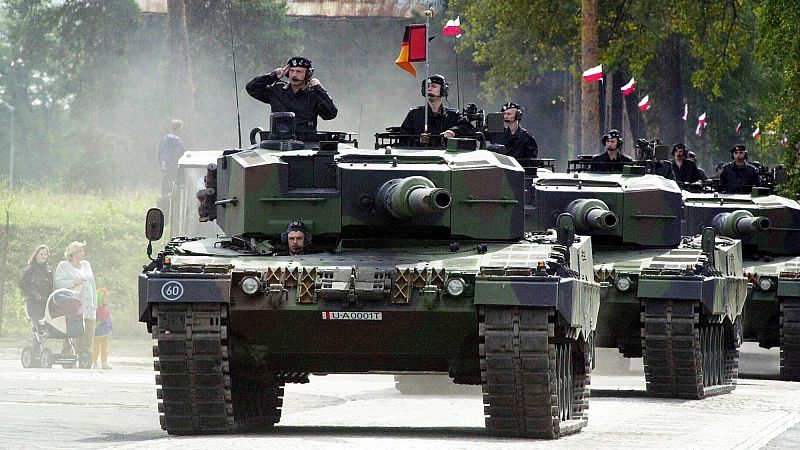France calls for EU military mobility coordinator to slash troops' transit time across Europe

French authorities are calling for the EU to quickly identify mobility corridors for the military and to set up a coordinating authority to ensure troops and equipment from across the bloc can quickly move east if a larger conflict breaks out.
"The war of aggression being waged by Russia on European territory, on Ukrainian territory, makes it likely I would say, that our forces will be heavily engaged on European territory on our continent," Air Force Brigadier General Fabrice Feola, who commands the French military's Operations and Transport Support Centre, told reporters on Thursday morning.
Currently, it can at times take more than 10 days for France to receive the necessary permits from other member states to move military personnel or equipment through, despite a European target of five days maximum, the general said.
France leads a multinational NATO battalion in Romania, trains Ukrainian soldiers in Poland as part of the bloc's EUMAM mission, and donates military equipment to Kyiv.
Bilateral agreements with other member states that reduce this time only cover standard types of convoy with limits imposed on the number of troops, vehicles and type of equipment.
The European Commission is expected to present a package on military mobility in mid-November to simplify procedures and facilitate movement throughout the bloc.
For Feola, speeding up the time it takes to obtain permits to cross borders and dematerialising a number of customs documents are both "achievable and within reach".
But the EU also needs to identify as a matter of urgency mobility corridors whose railways, roads, tunnels, and bridges can withstand the height, width, and weight constraints of military equipment.
'There should be no discontinuity'
Discussions between member states, NATO representatives, as well as Andrius Kubilius, the European Commissioner for Defence and Space, and Transport Commissioner Apostolos Tzitzikostas, on corridors took place over the summer.
Four such corridors are already established with 500 priority projects ranging from reinforcing bridges and widening tunnels to constructing railway sidings already identified.
Kubilius told Euronews earlier this year that the bloc will need an initial investment of €70 billion to urgently adapt its rail, road, sea, and air corridors to facilitate the swift movement of troops and equipment across the bloc in the event of conflict.
But Feola also said "it is extremely important to have a unifying authority to coordinate all the efforts being made to ensure that everything fits together from one country to another".
"There should be no discontinuity between corridors or between routes. Efforts should be optimised, I would say, to ensure continuity," he added.
EU governments also need to lay the groundwork to ensure ministries start working together and communicating so that in the event of a conflict, there is no "internal competition" to move goods around. France, he said, has reactivated an interministerial logistics coordination unit to that effect.
"I am thinking in particular of our American ally who, in the event of NATO plans being activated, would land en masse on the Atlantic coast and would need to cross our country to reach positions further east. So this notion of competition inevitably leads us to coordinate at national level in order to make the best possible use of the resources available to us," he said.
The European Commission in April already adopted new legislation facilitating the authorisation of personnel carriages that can be integrated in freight trains.
Trains, Feola said, are especially relevant in the European context and the French military chartered 150 international rail trips in 2024, a huge jump from the "handful - less than five a year" that were chartered before Russia launched its full-scale invasion of Ukraine in 2022.
Beyond the need to identify transport corridors, the main other challenge for armed forces when it comes to international mobility is that the vast majority of equipment transit is done using resources from the private sector.
In France, last year, 90% of the military's freight transport was done using external resources. In the case of trains, the French military is now working in narrow cooperation with the national railway company, the SNCF.
Today

